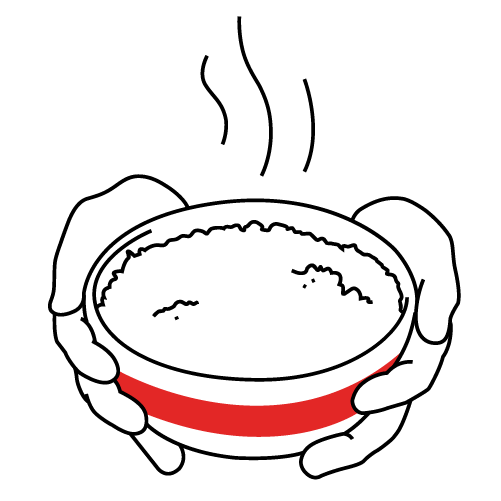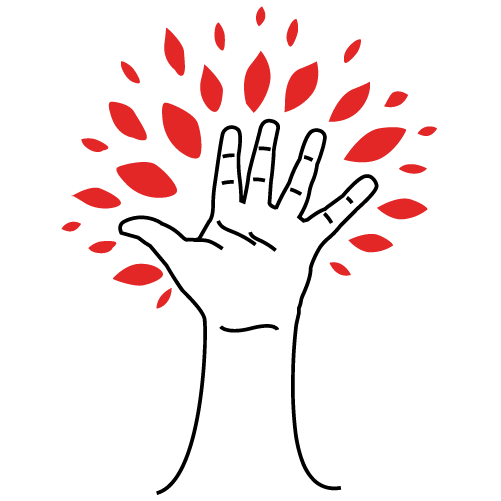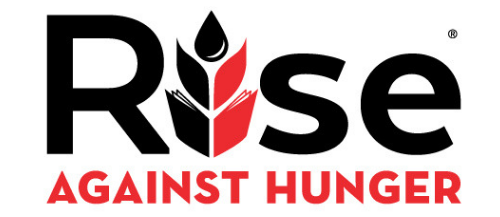to Rise Against Hunger
Rise Against Hunger’s Pathways to End Hunger model aligns with the United Nations Sustainable Development Goals (SDGs), primarily #2 Zero Hunger and #4 Quality Education.

Pathways to End Hunger
We target remote, last-mile communities within hunger pockets designated “serious” or higher on the Global Hunger Index, which are the hardest places to reach and are often difficult to access, lack communication and have poor infrastructure. With the support of our global impact partners, we practice locally-led development by providing expertise vital to empower local communities and providing meals through local schools to incentive attendance and enable kids to obtain an education. Our work starts with a meal.
 NOURISHING
NOURISHING
LIVES
Safety Nets
While long-term food security projects take root, communities facing hunger still need to meet their basic needs today. We provide nutritional support through Rise Against Hunger meals, which contain 20 vitamins and minerals, and local regional procurement, which procures foods locally, to meet community needs. These safety net programs not only provide nourishment, but also support education, skills training, and health services that support the difficult journey out of poverty. As communities continue to experience a lack of access to food, we are working to expand our efforts to consistently provide nutritious food through educational settings to over 6 million people by 2025.
Current Countries Engaged: Burundi | Democratic Republic of Congo | Ghana | Haiti | Honduras | India | Kenya | Madagascar | Nicaragua | Philippines | Somaliland | South Africa | Tanzania | Timor-Leste | Uganda | Vietnam | Zimbabwe


 RESPONDING TO EMERGENCIES
RESPONDING TO EMERGENCIES
Crisis Relief
From droughts to floods, in conflict zones and transitioning political situations, food is often the most immediate need. When everyday access to food, wages and market systems are destroyed in the wake of emergencies, we work through a network of in-country partners to address these needs and ensure food and other assistance is efficiently and effectively deployed to and received by communities when it is needed most. Five million people are projected to receive support through our rapid response in protracted crises and sudden-onset disasters within the next several years. To ensure we can respond in times of urgent need, donate to our Global Emergency Response Fund.
Current Countries Engaged: Australia | Cambodia | Czech Republic | Dominican Republic | Haiti | India | Indonesia | Italy | Liberia | Malaysia | Moldova | Niger | Nigeria | Philippines | Poland | Romania | Singapore | South Africa | Sri Lanka | Thailand | Turkey | Ukraine
 EMPOWERING COMMUNITIES
EMPOWERING COMMUNITIES
Agriculture and Income-Generating Initiatives
Through locally led agriculture and income-generating programs, we bolster crop production and incomes by promoting improved agricultural methods, business skills and market access. With training and access to quality seeds and fertilizers, farmers can increase production and harvest a variety of nutrition-sensitive crops. By supporting fish and livestock production, we provide pathways to diversifying diets and improving nutritional outcomes. Through income-generating activities, we help individuals increase their earning potential and consistent access to food. Within three years, we are aiming for hundreds of thousands of households affected by food insecurity to have the knowledge, skills, and assets necessary to ensure their food and nutrition security.
Current Countries Engaged: India | Malawi | Mali | Philippines | South Africa | South Sudan | Zimbabwe


 GROWING THE MOVEMENT
GROWING THE MOVEMENT
Momentum and Action for Ending Hunger
Rise Against Hunger recognizes that hunger will not end without creating a global movement. We engage hundreds of thousands of volunteers and advocates each year to build awareness and activation. Over the next several years, we want to engage over 2 million donors, fans and influencers to make a difference through our various opportunities, including meal packaging, virtual experiences, digital and social engagement, and more.
Current Countries Engaged: Australia | Belgium | China | France | Germany | Greece | Hong Kong | India | Indonesia | Ireland | Italy | Malaysia | The Netherlands | New Zealand | Philippines | Portugal | Poland | Romania | Singapore | South Africa | South Korea | Spain | Sweden | Taiwan | Thailand | Vietnam | United Kingdom (UK) | United States
